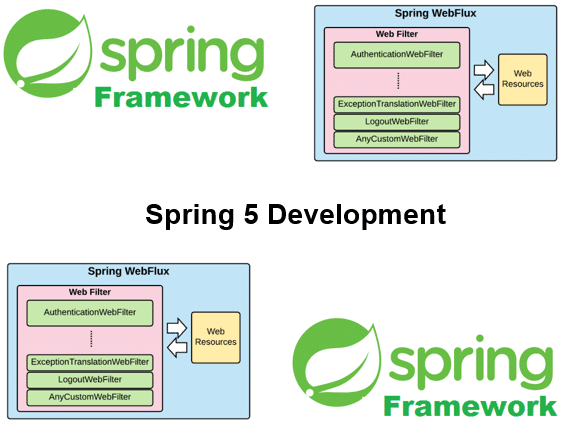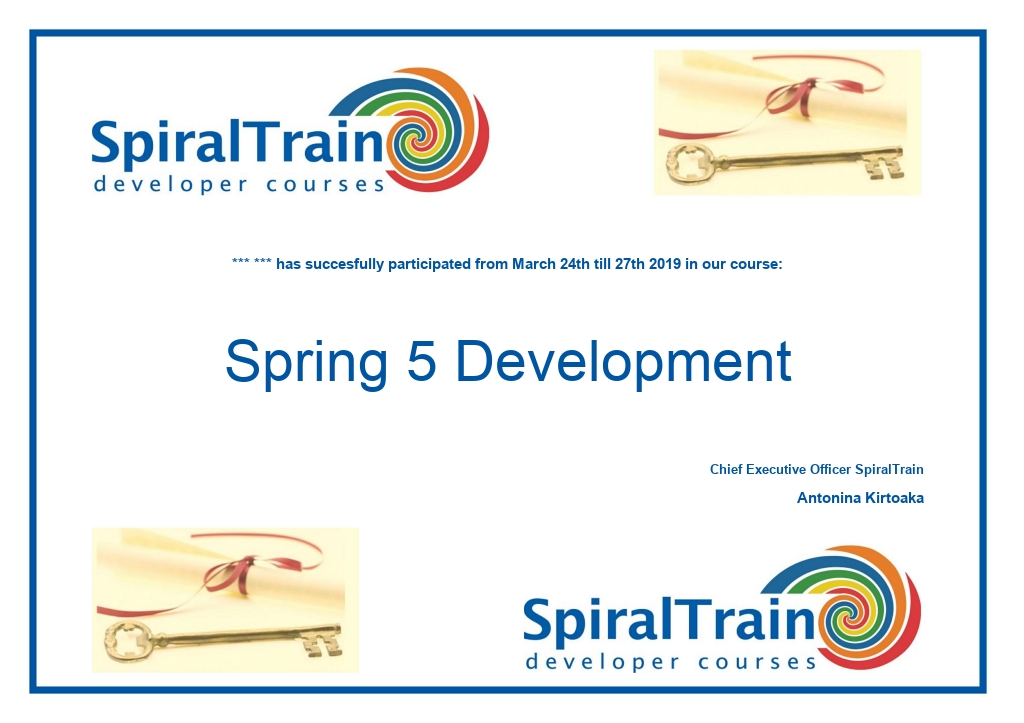-
Learning by doing
-
Trainers with practical experience
-
Classroom training
-
Detailed course material
-
Clear content description
-
Tailormade content possible
-
Training that proceeds
-
Small groups
In the course Spring 5 Development you will learn the latest features of version 5 of the Spring Framework. The training discusses Reactive Programming with Spring WebFlux and Reactive Streams. You will also learn to use Functional Programming constructs in Spring and the Kotlin programming language.
The course Spring 5 Development is intended for developers with knowledge of and experience with the Spring Framework who want to learn the new features of Spring 5.
Experience with programming in an older version of the Spring Framework is required to take part in this course.
The concepts are treated on the basis of presentations and demos. The theory is interspersed with exercises. The course times are from 9.30 to 16.30.
Participants receive an official certificate Spring 5 Development after successful completion of the course.

Module 1 : Spring 5 New Features |
Module 2 : Spring Core Additions |
Module 3 : Reactive Programming |
|
JDK 8 and 9 Support JDK Changes Annotation based Programming Lambda's for Bean Registration Functional Web Framework HTTP 2 Support Server Push Servlet 4.0 Pushbuilder Library Support JUnit 5 Support |
@Nullable annotation @NotNull annotation Java 8 reflection enhancement Java 8 default methods Commons Logging bridge Resource abstraction Component index Consistent detection of transaction Async annotations GenericApplicationContext |
What is Reactor? Reactive Design Pattern Reactive Streams Support Event Loop Execution Model Reactive Stack Reactive Stream Adapters Spring Security Reactive Reactor and RxJava Mutable State Threading Model |
Module 4 : Functional Programming |
Module 5 : WebFlux |
Module 6 : Kotlin and Spring |
|
Matching Media Types Match HTTP Request Predicates Functional Endpoints? HandlerFunction RouterFunction FilterFunction Composing Functions Method References DispatchHandler Conventional Request Patterns Restful API URI Delegating Calls REST Endpoints |
What is WebFlux? WebFlux Config Reactive API Annotated Controllers Spring MVC or WebFlux? Event Loop Concurrency Model Netty WebHandler API Asynchronous Service Request Handling Concurrent Requests Event Bus Implementation Mono and Flux |
What is Kotlin? Functional Web endpoints Bean registration with Kotlin Constructors and Inheritance Destructuring Declarations Delegations Sealed and Data Classes Visibility Control Extension Java Interoperabiliy Kotlin's DSL Immutable Classes null Safe API |
Module 8 : Testing with JUnit 5 |
||
|
What is new in JUnit? JUnit Jupiter JUnit Vintage Basic Annotations @BeforeAll and @BeforeEach @DisplayName and @Disabled @AfterEach and @AfterAll Assertions and Assumptions Exception Testing Test Suites Dynamic Tests |
